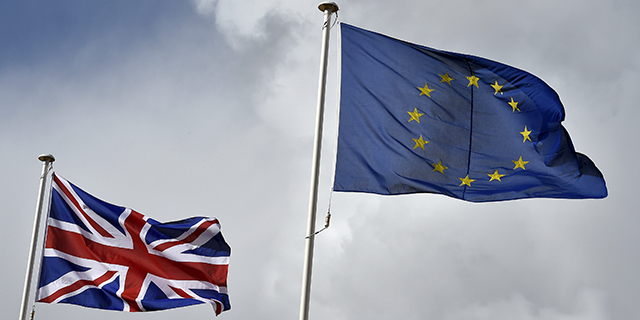GlobalView from Bishop Bill Atwood
Social media allows anyone to posit pretty much anything for public dissemination. Outrageous content has the greatest possibility of achieving the widest distribution and re-transmission. That’s why there is so much public information about the Kardashians that my spell-checker knows how to spell their name. Who would have ever predicted that! Now, we are experiencing the phenomenon of social media platforms impacting political process. In the U.S., a “TV celebrity” has risen to be the presumptive Republican nominee for President of the United States. I did not expect that. That process was hugely fueled by free cable TV news coverage of outrageous comments and a tsunamic wave of Tweets, Likes, Shares, and Posts. Never before has so much been accomplished (for good or ill) with so little money being spent. In addition, I’m not aware of any phenomenon for which so much leverage has been produced by the general population.
Similarly, and fascinatingly contemporaneous, with the events in the American election process, a referendum has been held in the United Kingdom about Britain’s membership in the European Union (EU). The EU is what you get when you take the disparate cultures of 28 member states and chuck them into a Cuisine Art food processor, mixing up economics, social practice, and various values into a muddled goo of free trade in which the dominant culture is defined by the loudest voices. There is a great challenge in that, although there is a common currency in most of the countries, the economies are vastly different. As a result, Germany and the United Kingdom have been relied on to prop up weaker economies such as those of Greece, Ireland, Italy, and Portugal. The economies of those countries are so fragile that they are basically unsustainable without loans and grants from other states—most notably Germany and Great Britain.
The “union” side of the EU has resulted in all but eliminating borders. There has been a huge migration from places with weak economies to places with stronger ones, rendering employment much more competitive in places such as Germany and Britain.
There is also another interesting phenomenon. When borders and cultures are blended together like this, there is a removal of many distinctions and barriers. The result is much like the aims and perspective of Paganism. You may remember that I have written before that the aim of Paganism is to foster a world-view in which there are no barriers between us and “god,” between genders, nations, and even distinctions of behavior. European Union advocates are thrilled with the blending of things to the point that everything becomes kind of a monochrome mush—although I’m sure that advocates of pagan pursuit would use a less pejorative term.
Hoping to defuse tensions in Britain among those who are concerned with unbridled immigration policy, cultural shifts, and immigrants’ impact on jobs, a huge movement emerged that resulted in pressing the British government into holding a referendum about whether or not Britain should continue its membership in the EU.
Last week, when we went to bed, it looked as though those who favored continuing membership had won. By the morning, however, when all the votes were in, the vote was to leave. In the aftermath, markets have tumbled, and questions and uncertainty abound. In much the same vein as what is happening in American politics, aficionados of the status quo are predicting disastrous consequences. Disaster is certainly possible, but much is unknown. Much, perhaps most, of the angst is because a majority of those who voted in the referendum (or in the Primaries in the USA) have rejected “conventional” and established political wisdom.
It remains to be seen how much impact there will be and how long it will last.
It all has a fascinating parallel with the Anglican Communion. Those who pursue a blended future with no boundaries are marching forward in the institutional church, despite the outcries of the majority in the communion. Without commenting on the wisdom of the BREXIT vote or the rise of Donald Trump, the fact of both stands as a very stark warning to those who view themselves as “Communion elites,” with no regard for what others say or think. For practical and financial reasons, over time a phenomenon has occurred whereby Western “developed” nations have an administrative hold on the Anglican Communion. Those nations and some of their allies have decided how matters need to proceed in the Anglican Communion and have disregarded the clear voice of GAFCON and other Global South Provinces who clearly disagree. They continue to march the institution forward like the creeping advance of a glacier, without regard to dissenting voices. The “elites” have decided that same-sex sexual expression must advance in Anglicanism. That is quite remarkable when one considers that (probably) more than 85% of the world’s active Anglicans disagree. Anyone and anything that does not agree to advance that world-view is ignored, ridiculed, or misrepresented.
The orthodox majority have spoken clearly at Lambeth 1998 and with the Primates at numerous meetings (e.g., Dar es Salaam and most recently Canterbury earlier this year), but the forces of the institution simply ignore that clarity. At the heart of it are two great desires. One is a nostalgic (though misguided) view that unity is the highest value. That is not correct. Unity in Christ is the highest value. So-called “unity” that is bereft of the truth of the Lordship of Christ and what He says is Truth is merely geographical proximity, which is almost meaningless. It certainly is not eternal and will never stand the plumb line of the judgment seat of Christ. The second factor is an elitist view that they know what is best. Those who disagree are less developed, bigoted, ignorant, or hateful. When Biblical inquiry and honest discussion cannot win the day for the liberal agenda, then the only way forward for the loud minority is to shout louder and keep marching while ignoring both Scripture and the cries of others. They are so convinced that they are right that they structure gatherings for “conversations,” which are actually utterly corrupt environments designed to march to a pre-determined outcome.
Now, what will happen in the Anglican Communion? Will there be a referendum to leave? No. Instead, what will happen involves two issues. First, the orthodox are “done” with institutional life. A few may attend some institutional gatherings, but those meetings no longer have any moral or spiritual authority. Many leaders who feel utterly betrayed by the failure to follow what the Primates said will absolutely never go back to another eye-wash festival of vapidity. They will not spend the money or the time to invest in meetings with people who are either unwilling or unable to implement agreements. What they will do is move forward with other Provinces that share their faith and values.
What is both most fascinating and tragic to me is the way in which those who serve the status quo in the Anglican Communion pursue their own reality. Like the Emperor in Hans Christian Andersen’s tale who has adopted the belief he is clad in elegant clothes that only the righteous can see, institutional voices seek to tell us that all is essentially well. Sadly, however, nakedness prevails.
If Communion leadership remains detached from the overwhelming majority, eventually they will experience a de facto separation that will be every bit as cataclysmic as BREXIT, if not more.



